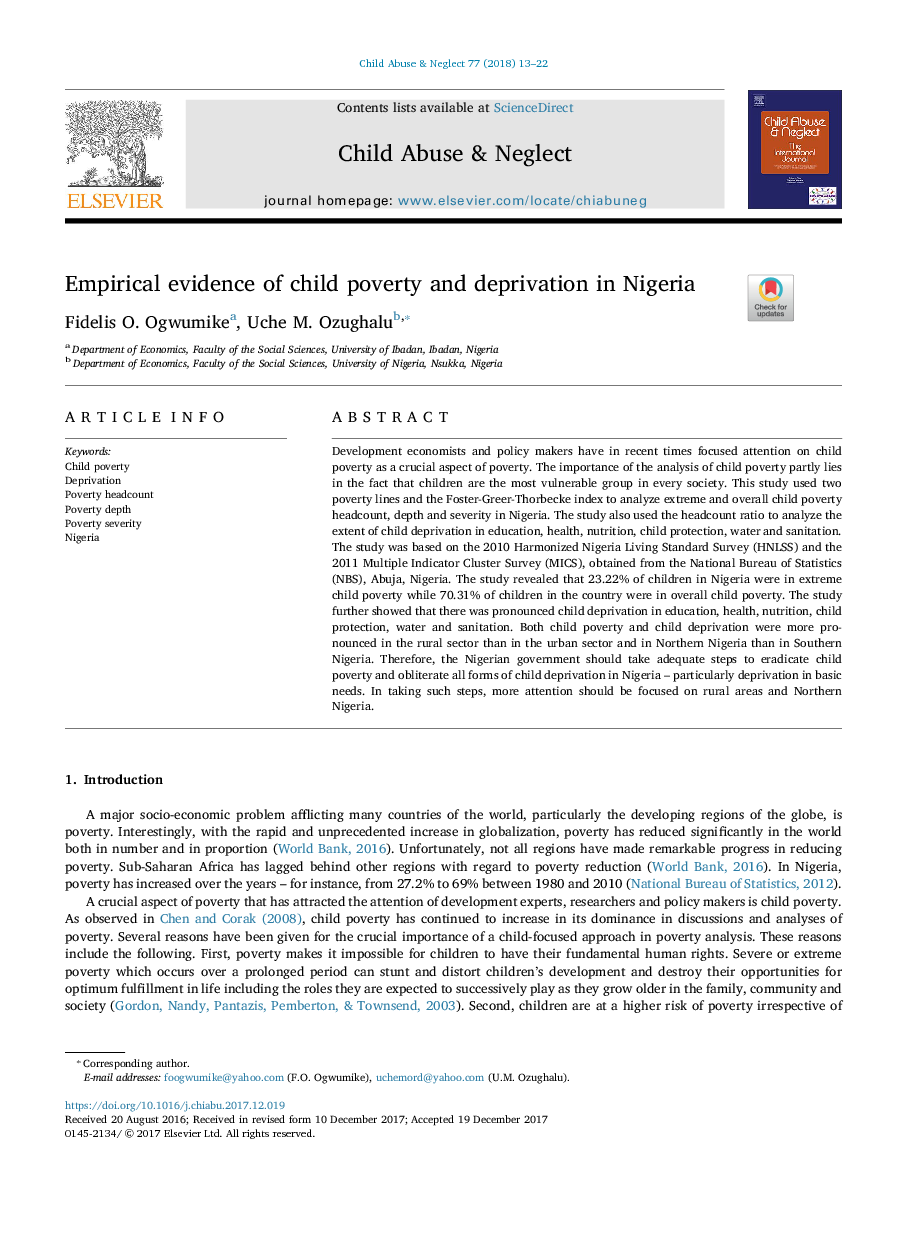ترجمه فارسی عنوان مقاله
شواهد تجربی فقر و محرومیت کودکان در نیجریه
عنوان انگلیسی
Empirical evidence of child poverty and deprivation in Nigeria
| کد مقاله | سال انتشار | تعداد صفحات مقاله انگلیسی |
|---|---|---|
| 129542 | 2018 | 10 صفحه PDF |
منبع

Publisher : Elsevier - Science Direct (الزویر - ساینس دایرکت)
Journal : Child Abuse & Neglect, Volume 77, March 2018, Pages 13-22
ترجمه کلمات کلیدی
فقر کودکان، محرومیت، تعداد کارمندان فقر، عمق فقر، شدت فقر، نیجریه،
کلمات کلیدی انگلیسی
Child poverty; Deprivation; Poverty headcount; Poverty depth; Poverty severity; Nigeria;

